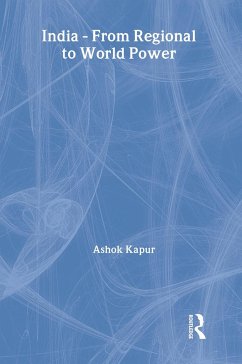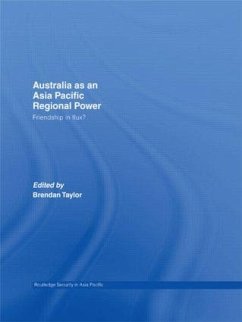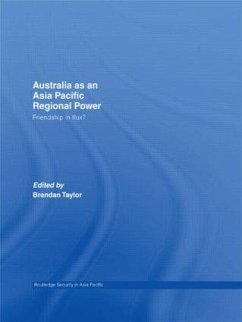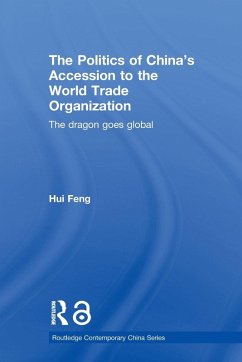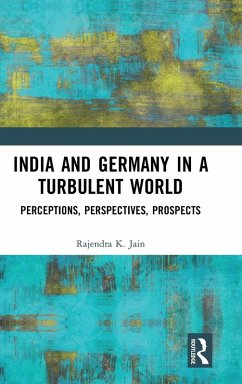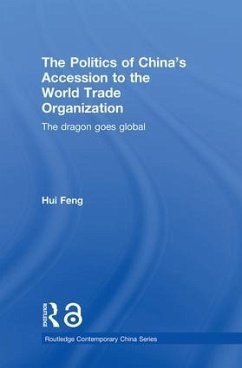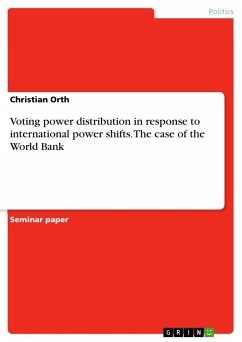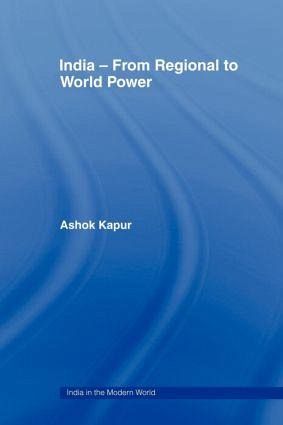
India - From Regional to World Power
Versandkostenfrei!
Versandfertig in 1-2 Wochen
59,99 €
inkl. MwSt.
Weitere Ausgaben:

PAYBACK Punkte
30 °P sammeln!
This book examines the rise of India to the status of a world power capable of dealing with the full spectrum of international and regional issues in a critical part of the world. It traces the evolution of Indian diplomacy in the hands of key Indian practitioners comparing Nehru, the founder of Indian diplomacy with his successors, the Nehruvians up to 1998, and finally, Vajpayee, the leader of the BJP (1998-2004). Its main purposes are to explain the strategic and ideological context in which Indian diplomacy was framed, the character of India's foreign policy problems, the nature and source...
This book examines the rise of India to the status of a world power capable of dealing with the full spectrum of international and regional issues in a critical part of the world. It traces the evolution of Indian diplomacy in the hands of key Indian practitioners comparing Nehru, the founder of Indian diplomacy with his successors, the Nehruvians up to 1998, and finally, Vajpayee, the leader of the BJP (1998-2004). Its main purposes are to explain the strategic and ideological context in which Indian diplomacy was framed, the character of India's foreign policy problems, the nature and sources of its dilemmas and the paradigm shift that was orchestrated by the BJP government to reposition India in the international system and to bring it into the global strategic and economic mainstream. It shows how the approach laid down by Nehru and followed by his successors (an approach that included nuclear self-restraint, the search for friendly relations with Pakistan and China, seeking the high ground in moral and diplomatic spheres, and giving a lead to the non-aligned Third World) has been replaced by a new, more self-confident and assertive approach based on India's growing economic strength and demonstrating a more strategic and pro-Western orientation. Overall, this book provides a meticulous account of many steps post-Nehruvian India has taken to make it a rising world influence and a mature, independent power.




